Cold or Allergy?
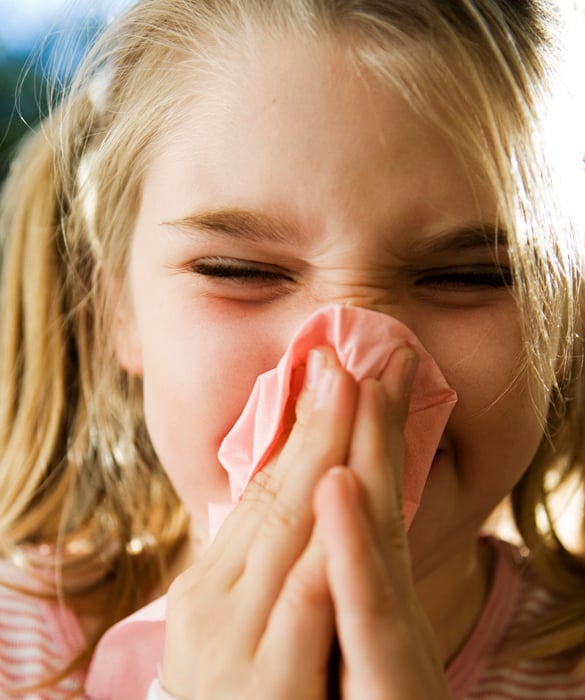
Detecting whether your child is suffering from a cold or an allergy is another one of those great mysteries—up there with “Is it gas or reflux?” and “Is she tired or hungry?” Luckily, unlike those newborn conundrums, you can get a definitive answer.
“This is a classic question we get all the time, in children and adults,” says Dr. Susan Laubach, an associate at the Allergy and Asthma Medical Group and Research Center in San Diego. “And there are a couple of distinguishing features that are important in determining which it is. “Forty percent of children under 18 will develop a respiratory allergy in their lifetime,” Laubach says.
What Are the Symptoms?
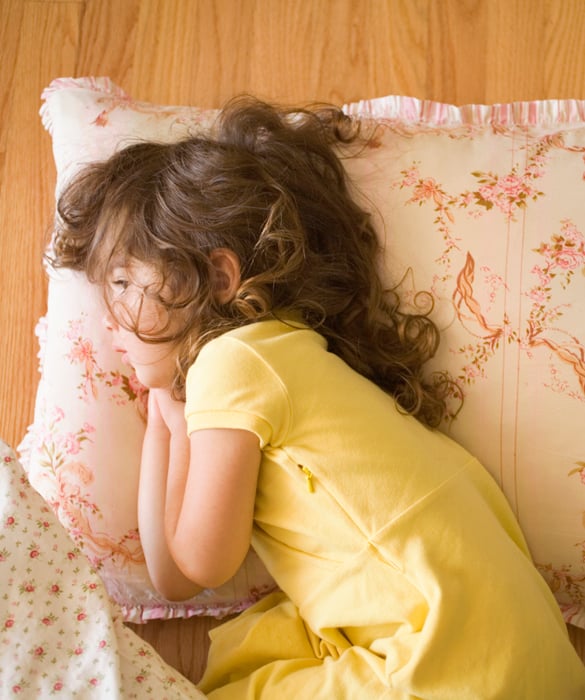
Sneezing, a stuffy nose and watery eyes are common symptoms of both a cold and allergy that can throw off an immediate at-home diagnosis. But certain symptoms rule out one condition or the other off the bat.
Is It Itchy?
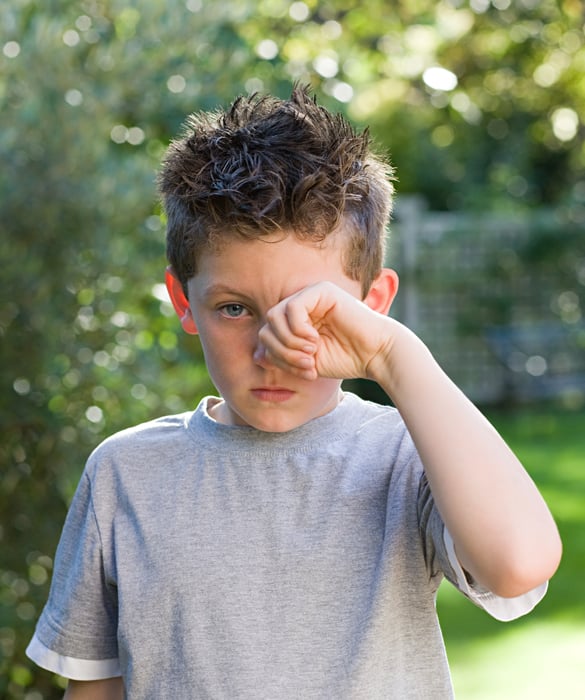
On the other hand, allergies usually bring on an itch. The throat, nose and even skin typically itch with an allergy, Laubach adds. So if your child is fine at home but walks outside and starts itching? Ding-ding-ding! It’s probably an allergy.
Look for Clues
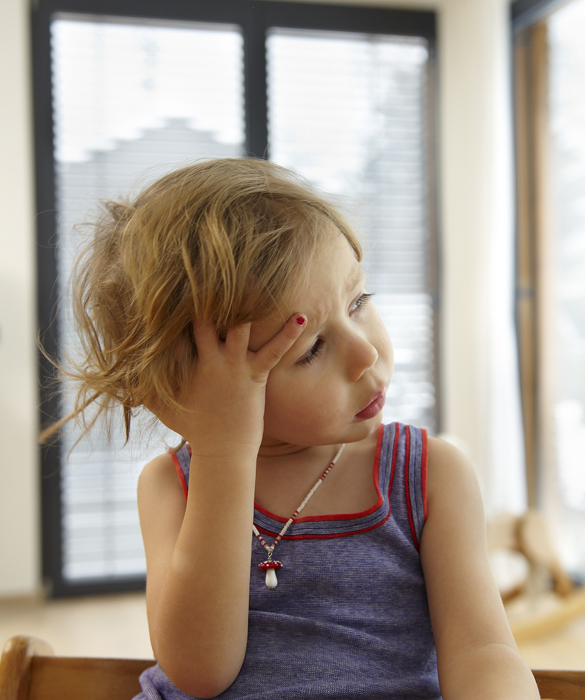
However, allergies and colds respond to different treatments. Antihistamines (Claritin, etc.) will take down the swelling caused by a respiratory allergy, but will do little to relieve the symptoms of a cold.
“If my patients are unsure (about which they have), I tell them to try an antihistamine,” says Laubach.
How Old Is the Patient?
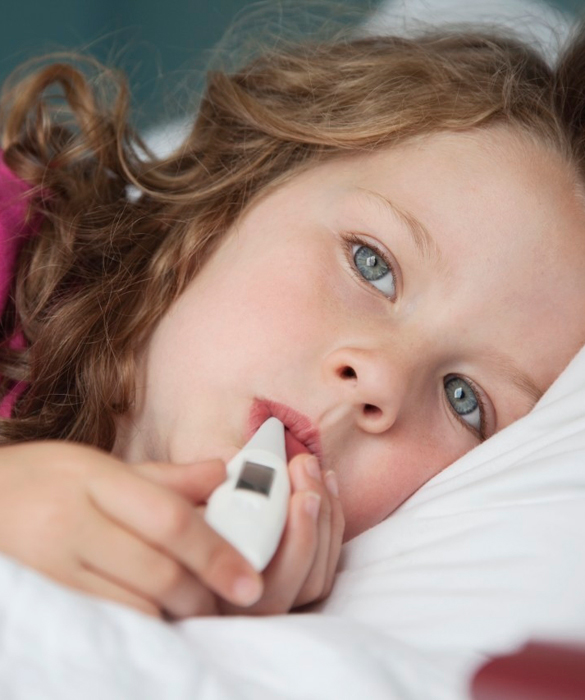
Because respiratory allergies are triggered by repeated exposure, children don’t typically develop seasonal allergies until they’re school age. “A recurrent runny nose in a baby or toddler is most likely a virus or infection,” Laubach says.
What Color Is the Mucus?
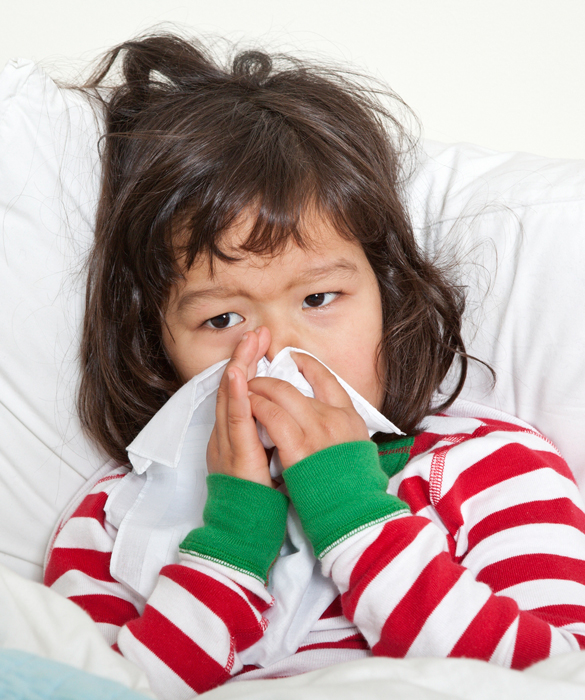
If you’re lucky enough to get a close look at the mucus, an allergy will usually produce clear stuff. Mucus from infections is either white, green or yellow.
What Is the Time of Day?
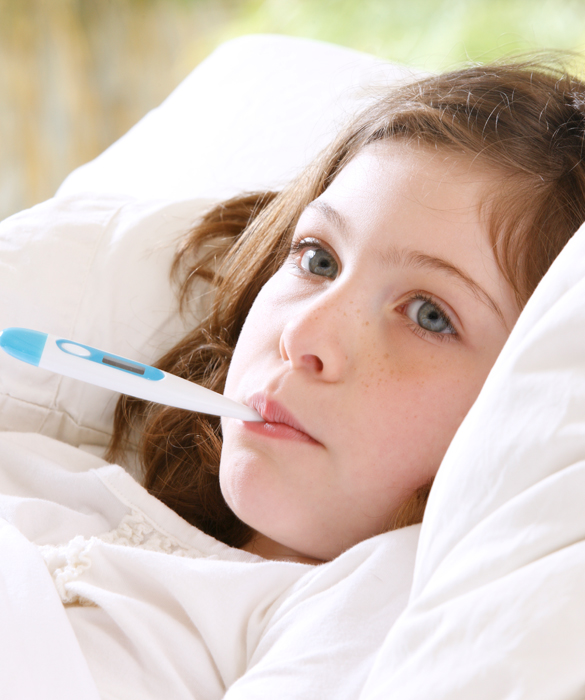
When does the sneezing and nose-blowing occur? If it’s when you go outside or in nature, it’s probably an allergy. Does your child wake up in the morning, blow his nose like crazy and then he’s fine until bedtime, when it kicks in again? This could be an allergy to dust mites, which live in the bedding.
What are the Social Exposures?
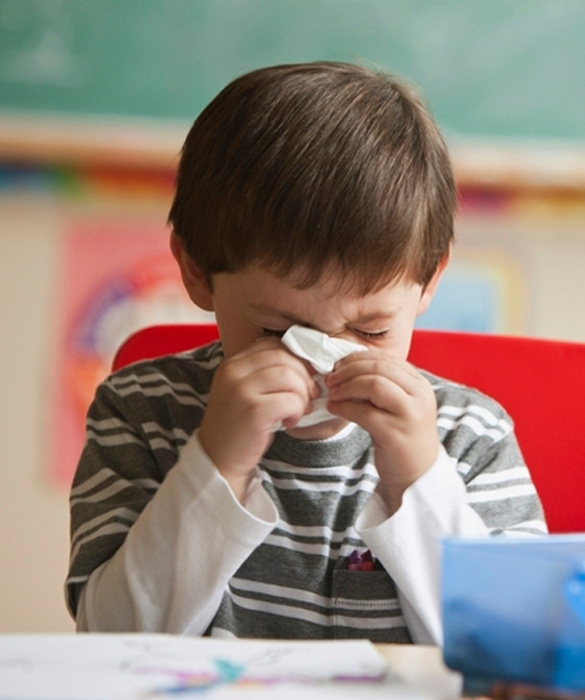
Did your child just start day care, preschool or kindergarten? And are there several runny noses?
What Is the Family History?
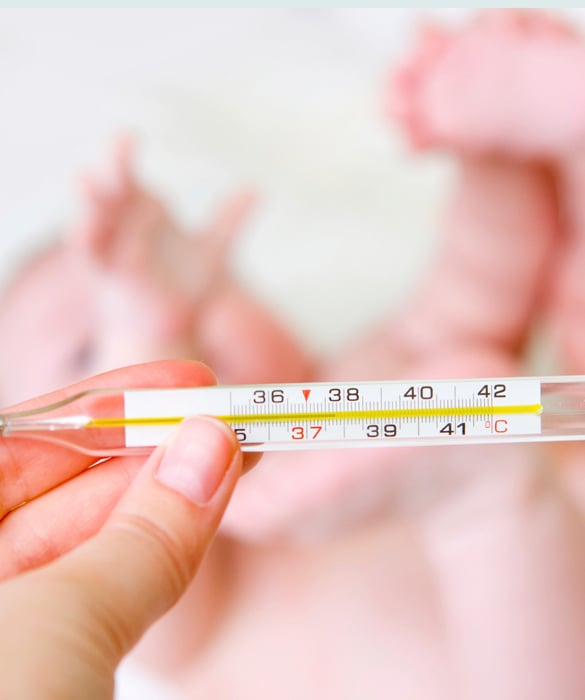
The rule of thumb for allergists is that if both parents have allergies, the child has a 75 percent chance of also having allergies. If only one parent is an allergy sufferer, the chances drop to 50 percent.
Take a Skin-Prick Test

But you don’t have to keep guessing. Allergists and many physicians can perform a simple skin-prick test on the spot that will reveal immediately whether it’s “in the air.” You just can’t have taken an antihistamine within the past week.
And the culprit might not be a change in seasons—dust mites and animal dander can cause the same symptoms. Either way, a trip to the doctor is the fastest way to clear up the issue.




